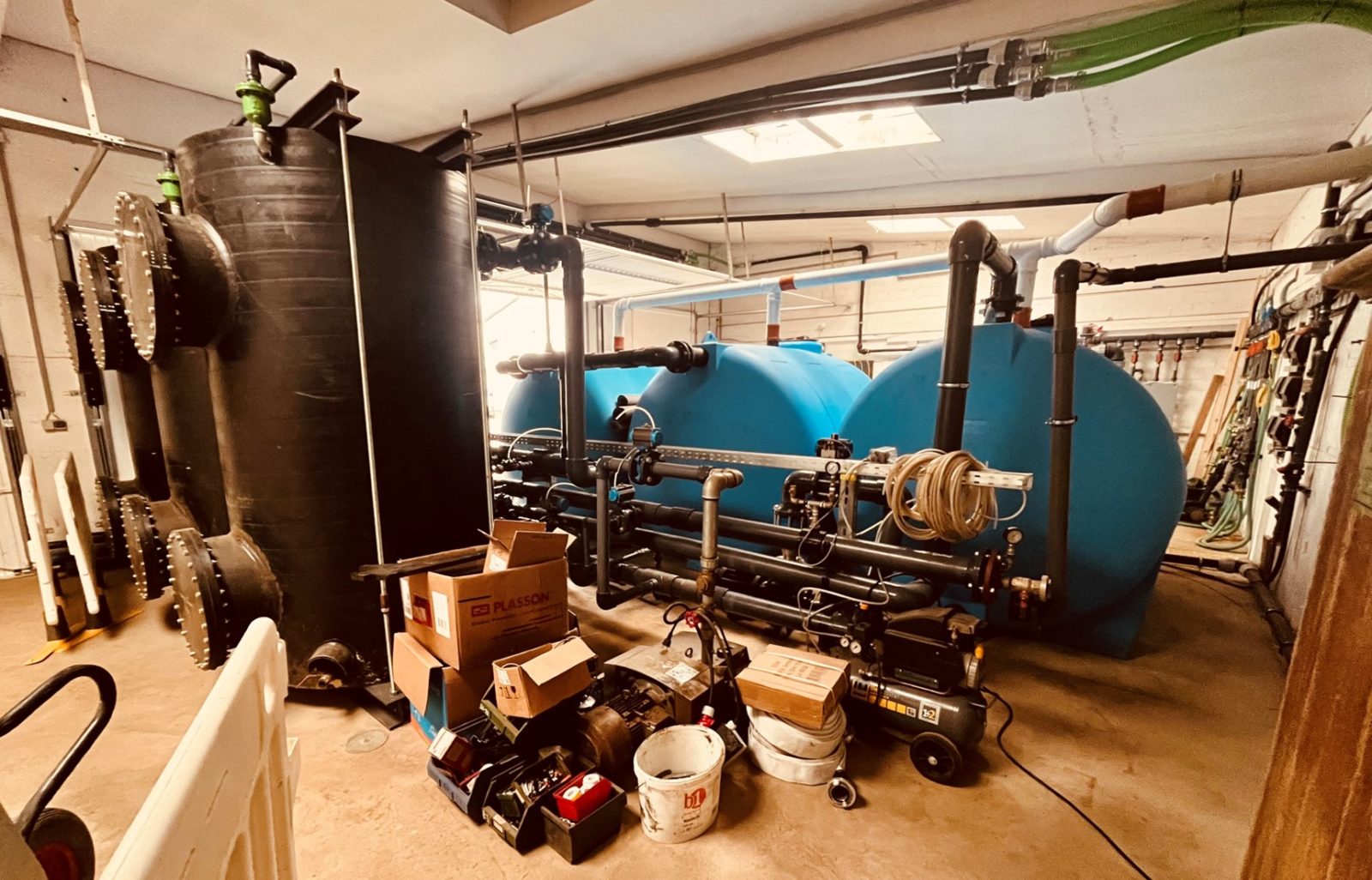On behalf of Stadtwerke Rinteln, M&P Ingenieurgesellschaft together with Sensatec GmbH are currently remediating the former gasworks site in the Weserbergland region in situ without having to restrict the current operations of the Stadtwerke. In the preceding soil and groundwater investigations, two sources of damage were identified. Through an innovative biological remediation using groundwater circulation, the gas plant-specific pollutants cyanides, PAHs and NSO heterocycles are to be degraded in the water-saturated subsoil. By adding active substances, the existing microorganisms are stimulated and subsequently metabolise the pollutants.
Even unforeseeable problems in the course of the project cannot stop M&P Ingenieurgesellschaft from implementing the planned sustainable rehabilitation strategy.
Due to locally present unexpected high iron concentrations in the groundwater, the plant technology is strongly influenced by iron sludge. Clogging and deposits on the pump housings and inside the pumps regularly led to a reduced flow rate, so that the circulation cells could not be sufficiently supplied with oxygen and active substances. A bag filter with a mesh size of 65 microns was temporarily installed upstream to maintain operation. To counteract the general problem, the operating concept was revised in consultation with the lower water authority and four additional 6" groundwater monitoring wells were set up for infiltration. A gravel filter system was constructed for the remediation wells in question and the remediation infrastructure was adapted. The difficulty of constructing the gravel filter was, among other things, the space requirement on an active site of the municipal utility. The plant consists of three filter towers connected in parallel as well as a receiver tank. This removes the suspension load from the process water and prevents clogging.
Following the successful conversion of the plant technology, the refurbishment can currently be continued as planned and with correspondingly less maintenance.

